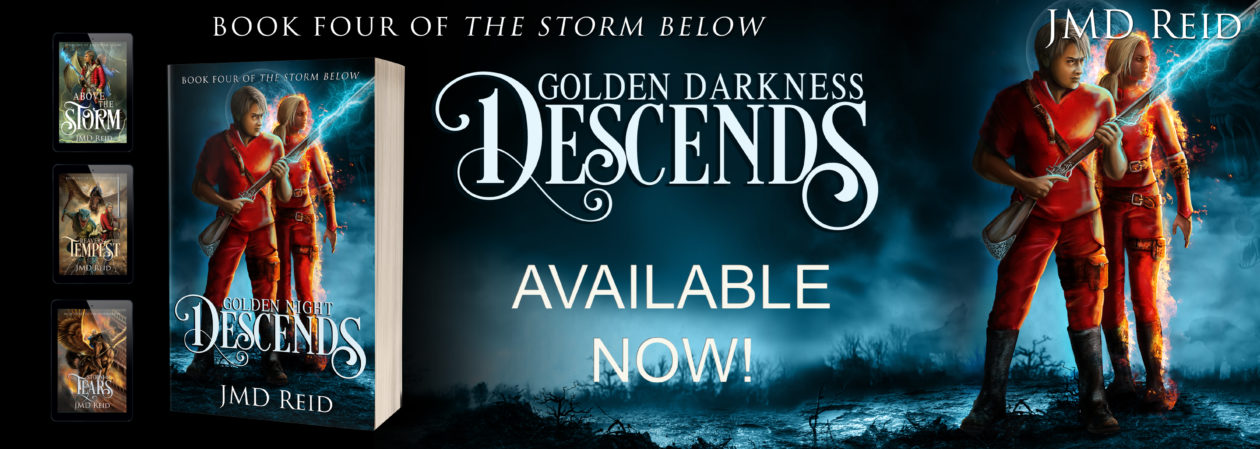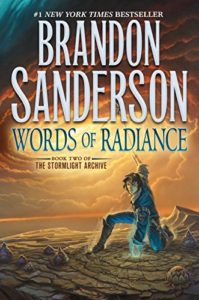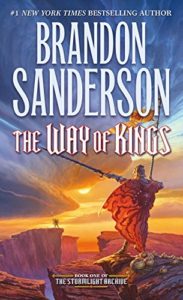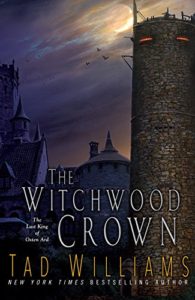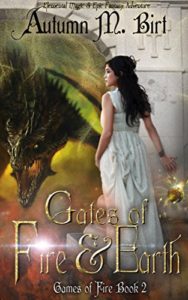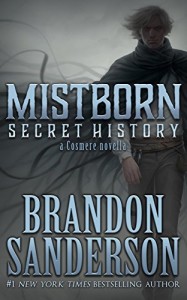Reread of Prince of Nothing Trilogy
Book 1: The Darkness that Comes Before
by R. Scott Bakker
Part 4
The Warrior
Chapter 13
The Hethanta Mountains
Welcome to Chapter Thirteen of my reread. Click here if you missed Chapter Twelve!
Even the hard-hearted avoid the heat of desperate men. For the bonfires of the weak crack the most stone.
—Conriyan Proverb
So who were the heroes and the cravens of the Holy War? There are already songs enough to answer that question. Needless to say, the Holy War provided further violent proof of Ajencis’s old proverb, “Though all men be equally frail before the world, the differences between them are terrifying.”
—Drusas Achamian, Compendium of the Holy War
My Thoughts
Stay away from people who are desperate. They will do stupid stuff and drag you down with them. It’s a good Proverb. These Conriyan are full of good advise. Of course, it is a warning to Kellhus, too. Cnaiür is a desperate man. Will Cnaiür crack Kellhus’s hearthstone and ruin everything? By the end of the chapter, Kellhus has plenty of reasons to kill Cnaiür, but stays his hand.
Achamian quote is obviously about the politics behind the Holy War, the differences between Cnaiür and Kellhus are terrifying to Cnaiür (and me). Glad I don’t have to deal with a Dûnyain.
Spring, 4111 Year-of-the-Tusk, the Central Jiünati Steppe
Cnaiür and Kellhus encounter fewer tribesman then they would have before the disaster of Kiyuth. Those they do encounter are typically made up of youths. As they travel, Kellhus presses Cnaiür for information on Shimeh. Cnaiür informs him it is a holy city to the Inrithi but the Fanim captured it. The Fanim believe it is their mission to the destroy the Tusk and thus have been at war with the Nansur Empire for many years. Cnaiür tells Kellhus of when he lead the Utemot in battle against the Fanim at Zirkirta to the south.
Kellhus asks about the Tusk and Cnaiür explains it is the first scripture of Men and the Scylvendi followed it before the birth of Lokung, the Scylvendi’s now dead god. Kellhus asks about Lokung, and Cnaiür reveals that Lokung is the Scylvendi name for the No-God. Kellhus then asks if the Fanim will tolerate their presence. Cnaiür thinks that he is unsure because of the Holy War. The Fanim were supposedly very tolerant of Inrithi pilgrims to Shimeh before the Holy War. Because of this, Cnaiür has chosen to head to the Nansur Empire to learn more about the situation instead of striking southeast across the Steppes to Kian. Cnaiür tells Kellhus that Fanim are tolerant of pilgrims.
As they travel, Cnaiür constantly thinks of murdering Kellhus in his sleep, but fears he would never find Moënghus without him. Occasionally, Kellhus would break the silence by asking about sorcery, and Cnaiür, thinking it was harmless to speak of, would indulge Kellhus. After a few days, Cnaiür realized that Kellhus used the subject of sorcery to carefully guide the conversation to more important topics.
That night, Cnaiür tries to murder Kellhus but a “paroxysms of self-doubt and fury” seized him and he went back to his blankets. Weeks pass like this when they encounter the camp of that Akkunihor tribe in the shadow of the Hethanta Mountains. Xunnurit, King-of-the-Tribes, was the Chief of the Akkunihor. The camp was abandoned, dead. Kellhus asks what happened, and Cnaiür states “Ikurei Conphas.”
Then, with unaccountable certainty, he realized that Kellhus would kill him.
The mountains were looming, and the Steppe swept out behind them. Behind them. The son of Moënghus no longer needed him.
He’ll kill me while I sleep.
No. Such a thing could not happen. Not after traveling so far, after enduring so much! He must use the son to find the father. It was the only way!
“We must cross the Hethantas,” he declared, pretending to survey the desolate yaksh.
“They look formidable,” Kellhus replied.
“They are . . . But I know the shortest way.”
They camped in an abandoned yaksh and Cnaiür ignored Kellhus and pondered his circumstances and question his own motives. He realizes how foolish it is to use a Dûnyain and crawls out into the Steppes to cry and beat the earth in fury while howls of wolves seemed to mock him.
Afterward, he put his lips to the earth and breathed. He could feel him listening from somewhere out there. He could feel him knowing.
What did he see?
It did not matter. The fire burned and it had to be fed.
On lies if need be.
Because the fire burned true. The fire alone.
So cold against swollen eyes. The Steppe. The trackless Steppe.
The next morning, they enter the foothills and encounter a group of Scylvendi returning from pilgrimage. A group breaks off to ride towards them while others guard a group of captives. Unlike other groups, these are young men, not youths, of the Munuäti tribe. Cnaiür remembers the Munuäti being decimated by the Imperial Saik. Their leader appears arrogant and Kellhus warns he “sees us as an opportunity to prove himself.”
Cnaiür tells Kellhus to be quite. The man introduces himself as Panteruth urs Mutkius and is distrustful of Cnaiür. He tells him there are rumors of Scylvendi spies for the Empire, which explains how they were defeated. An argument ensues and the man mocks Cnaiür. Cnaiür strikes Panteruth and then a fight breaks out.
Some charge at them while others fire arrows which Kellhus easily swats out of the sky. Cnaiür draws his own bow and uses his horse as cover and fires back while Kellhus faces eight charging Munuäti. Cnaiür momentarily thinks Kellhus is dead but Kellhus kills all of them. In the end, Cnaiür and Kellhus killed or incapacitated all the Munuäti save one who prepares to charge Kellhus.
Leaning into his lance, the horseman howled, giving voice to the Steppe’s fury through the thud of galloping hoofs. He knows, Cnaiür thought. Knows he’s about to die.
As he watched, the Dûnyain caught the iron tip of the man’s lance with his sword, guiding it to turf. The lance snapped, jerking the Munuäti back against his high cantle, and the Dûnyain leapt, impossibly throwing a sandaled foot over the horse’s head and kicking the rider square in the face. The man plummeted to the grasses, where his leathery tumble was stilled by the Dûnyain’s sword.
What manner of man. .?
Anasûrimbor Kellhus paused over the corpse, as though committing it to memory. Then he turned to Cnaiür. Beneath wind-tossed hair, streaks of blood scored his face, so that for a moment he possessed the semblance of expression. Beyond him, the dark escarpments of the Hethantas piled into the sky.
Cnaiür kills the wounded until only Panteruth is left. Cnaiür beats him and yells at him. “Spies! … A woman’s excuse!” Cnaiür beats and kicks the man, who weeps and cries out in pain before Cnaiür chokes the life out of the man. Kellhus watches and realizes that Cnaiür is mad. When Cnaiür finishes, Kellhus tells him the captives are all women. Cnaiür states that the women is “our prize.”
Serwë, one of the female captives, begs for Cnaiür’s help as he approaches. The other women huddled in fear behind her. Cnaiür just slaps her to the ground. Cnaiür and Kellhus make camp and Cnaiür claims Serwë as his prize because she reminds him of Anissi.
Kellhus feels a sense of outrage as he watches Cnaiür rape Serwë and wonders from what darkness the emotion came from. Kellhus believes something is happening to him. Kellhus observes that Serwë has suffered much and has learned to hide it. He watches as Cnaiür speaks to her in a foreign language that sounds like a threat. Then Cnaiür frees her.
“You’ve freed her, then?” Kellhus asked, knowing this was not the case.
“No. She bears different chains now.” After a moment he added, “Women are easy to break.”
He does not believe this.
Kellhus asks what language they spoke, and Cnaiür answers, Sheyic, the language of the Nansur Empire. Cnaiür says he questioned Serwë about the state of the Empire and learned that there is a Holy War against the Fanim to retake Shimeh. Kellhus instantly wonders if this is why his father summoned him. Kellhus asks what’s Serwë’s name. “I didn’t ask,” answers Cnaiür.
That night, as Cnaiür and Kellhus slumber, Serwë grabs a knife and goes to kill Cnaiür but is stopped by Kellhus who disarms her and pulls her away. He tells her his name and she replies with her own and starts to cry as he covers her gently with a blanket. She falls a sleep sobbing.
The next morning, Serwë’s continues to feel the dread she’s felt since she was capture by the Munuäti. She’s even more scared with Cnaiür. She felt utterly alone and thought her Gods had abandoned her. She watches Cnaiür walk to the other women, who, like Serwë, came from the Gaunum household. The women begin to plead with Cnaiür, including wives of several nobles who had hated Serwë. One had an ugly bruise on her face and asked Serwë to tell Cnaiür that she was beautiful. Serwë pretended not to hear, too scared.
Cnaiür draws his knife and the women think he means to kill them. He uses his knife to pry open their manacles and sets them free. He tells the women that others will find them and that he will shoot any who follow. Now the women begin to beg for him to stay. Others are envious that Serwë was staying with the Scylvendi and Serwë felt glad.
Barastas’s wife marched forward, shrieking at Serwë to stay, that she owns her, and Cnaiür causally fires an arrow and kills her. Serwë feels a surge of terror and thinks she might vomit.
During the day, Serwë passed the time talking to Kellhus, who seemed to exude trust to her. She that she was a Nymbricani and was sold as a concubine to a the Nansur House of Gaunum. The wives of the Gaunum nobles were jealous of her beauty and how they strangled her first child when it was born. She was told “Blue babies… That’s all you’ll ever bear, child.” After three days, Kellhus had mastered Sheyic, a tongue that took Serwë several years to learn. At night, Serwë belonged to the Scylvendi.
She could not fathom the relationship between these two men, though she pondered it often, understanding that her fate somehow lay between them. Initially, she’d assumed that Kellhus was the Scylvendi’s slave, but this was not the case. The Scylvendi, she eventually realized, hated the Norsirai, even feared him. He acted like someone trying to preserve himself from ritual pollution.
At first this insight thrilled her. You fear! she would silently howl at the Scylvendi’s back. You’re no different from me! No more than I am!
But then it began to trouble her—deeply. Feared by a Scylvendi? What kind of man is feared by a Scylvendi?
She dared ask the man himself.
“Because I’ve come,” Kellhus had replied, “to do dreadful work.”
Serwë begins to wonder why Kellhus doesn’t take her from the Scylvendi, but she knew the reason. “She was Serwë. She was nothing.” A lesson she learned early on. She had a happy childhood. Her parents, particularly her mother, doted on her. When she was fourteen, her father sold her as a slave to the Gaunum family, and she had much of her delusions knocked out of her. Her life as a concubine was full of anxiety, she was trapped between the wives, who hated her beauty, and the husbands who lusted for her. She begin to take pride in seducing the husbands. It was all that was left to her.
Once, she was taken to Peristus’s bed with his wife. Peristus’s wife was an ugly woman and Peristus was using Serwë to get him ready to impregnate his wife. Serwë, out of spite, excited Peristus too much and stole his seed. She became pregnant, and Peristus’s wife spent the entire pregnancy tormenting her about her child’s impending death. She went to Peristus who just slapped her for bothering him. Serwë prayed to the gods for mercy but her child was “born blue.”
Serwë begin to pray for vengeance on the Gaunum, and a year later all the men rode off to join the Holy War. Then the Scylvendi raided the villa, and she learned a new level of suffering with the Munuäti. It filled her with outrage.
Despite all her vanities and all her peevish sins, she meant something. She was something. She was Serwë, daughter of Ingaera, and she deserved far more than what had been given. She would have dignity, or she would die hating.
But her courage had come at a horrible time. She had tried not to weep. She had tried to be strong. She had even spit in the face of Panteruth, the Scylvendi who claimed her as his prize. But Scylvendi were not quite human. They looked down on all outlanders as though from the summit of some godless mountain, more remote than the most brutal of the Patridomos’s sons. They were Scylvendi, the breakers-of-horses-and-men, and she was Serwë.
But she had clung to the word—somehow. And watching the Munuäti die at the hands of these two men, she had dared rejoice, had dared believe she would be delivered. At last, justice!
When Cnaiür raped her after killing the Munuäti, Serwë realized that there was no justice, just the whim of powerful men. Serwë thought she was nothing, that was why everyone hurt her. Even Kellhus abandoned her at night.
After crossing the Hethantas, Cnaiür confronts Kellhus, telling him he brought him to the Empire to kill him. Kellhus asks if Cnaiür actually wants to be killed by Kellhus. Kellhus had known for days that Cnaiür feared that Kellhus would kill him once they crossed the mountains. If Cnaiür could not kill the father, he would settle for the son. Crossing the Empire with a Scylvendi will just get them killed and Cnaiür knows there is nothing but the mission for a Dûnyain.
Such penetration. Hatred, but pleated by an almost preternatural cunning. Cnaiür urs Skiötha was dangerous. . . Why should he suffer his company?
Because Cnaiür still knew this world better than he. And more important, he knew war. He was bred to it.
I have use for him still.
Kellhus knows now he must join the Holy War to reach Shimeh. Kellhus doesn’t know enough about war to properly harness it and needs a tutor. Kellhus points out to Cnaiür his father has had thirty years to build his power base. Kellhus has need of a man who is as immune to Moënghus’s methods. Cnaiür thinks Kellhus is trying to lull him into lowering his guard.
Kellhus decides to demonstrate his skill and attacks Cnaiür with his sword. Serwë cheers for Kellhus to kill him as the pair trade blows. At the right moment, Kellhus grabbed Cnaiür sword arm but is not quick enough to stop Cnaiür landing a punch to Kellhus’s face, and he realized he misjudged Cnaiür reflexes. Kellhus drops his sword and catches Cnaiür blade between his hands and disarms him. Then Kellhus proceeds to beat him on the ground on the ledge of a cliff. Kellhus subdues Cnaiür and holds him out over the edge.
“Do it!” Cnaiür gasped through snot and spittle. His feet swayed over nothingness.
So much hatred.
“But I spoke true, Cnaiür. I do need you.”
The Scylvendi’s eyes rounded in horror. Let go, his expression said. For that way lies peace. And Kellhus realized he’d misjudged the Scylvendi yet again.
He’d thought him immune to the trauma of physical violence when he was not. Kellhus had beaten him the way a husband beats his wife or a father his child. This moment would dwell within him forever, in the way of both memories and involuntary cringes. Yet more degradation for him to heap on the fire.
Kellhus hoisted him to safety and let him drop. Another trespass.
Serwë is weeping because Kellhus spared Cnaiür. Kellhus asks Cnaiür if he believes him now. Cnaiür finally answer that Kellhus thinks he needs him. Kellhus is perplexed and thinks Cnaiür becomes more erratic. Cnaiür points out that he is a heathen, no better than a Fanim. Kellhus tells him to pretend to convert. “…the Inrithi think they are the chosen ones… Lies that flatter are rarely disbelieved.” Cnaiür points out the Nansur won’t care.
Kellhus doesn’t understand Cnaiür reluctance to find Moënghus, and then Kellhus realizes that Cnaiür despaired and had abandoned hope. Kellhus had missed this. He momentarily contemplates disposing of Cnaiür but knows he must posses the Holy War to succeed, but he would need instruction on how to properly wield it and thinks the odds of finding someone else with Cnaiür experience are slim. For now, he will stay this course unless crossing the Empire with a Scylvendi proves to difficult. Kellhus tells him their story, that Cnaiür is the last of his tribe who found Kellhus, a prince traveling from Atrithau to join the Holy War.
Though Cnaiür now understood, even appreciated, the path laid for him, Kellhus knew that the debate raged within him still. How much would the man bear to see his father’s death avenged?
The Utemot chieftain wiped a bare forearm across his mouth and nose. He spat blood. “A prince of nothing,” he said.
The next morning, the trio finds the spiked Scylvendi’s heads that Conphas had lined the road to Momemn with. Serwë urges Kellhus to kill Cnaiür before the Nansur find them and Kellhus tells her that she mustn’t betray them. Serwë would never betray Kellhus, who she has fallen in love with. Kellhus tells her she must suffer and she weeps bitterly. Cnaiür tells her “Hold tight this moment, women… it will be your only measure of this man.”
Cnaiür gestures to the road line with spiked heads and says, “This is the way to Momemn.”
My Thoughts
Fanim are tolerant of Inrithi pilgrims. I bet the economy of Shimeh is dependent on these wealthy Inrithi coming to Shimeh, buying supposedly holy trinkets. Even in horribly dysfunctional fantasy worlds its funny to think the tourist trap exists, and that it bridges religious differences. Historically, Muslims have been tolerant of Christian pilgrims to the Holy Lands at times.
Kellhus relates his encounter with the Nonman from the prologue, trying to learn everything he can about sorcery. However, Cnaiür is so distrustful of Kellhus that even when Kellhus tells a true story, Cnaiür doesn’t believe him. Kellhus, this is the same problem people have with politicians. I just assume there lying whenever they speak, which is the same policy one should take with a Dûnyain.
“What do you see?” is a question Cnaiür asks himself as he studies Kellhus. This is a significant question. In one of Achamian’s dreams, he relives the Battle of Mengedda (taking place on the same plain where the Vulgar Holy War was destroyed). Here, the No-God was struck down and defeated 2000 years ago. The No-God, through the mouths of thousands of Srancs, asks “What do you see?” It’s a mystery that Bakker hasn’t yet revealed (though I’m hoping the Great Ordeal coming out Tuesday, July 12th will hold answers). When Cnaiür asks this question several times and it pops out of me.
When they approach the mountains, Cnaiür suddenly realizes his danger. Cnaiür is right, once his usefulness is over, Kellhus will discard him. However, Cnaiür, just because Kellhus doesn’t need you doesn’t mean he’ll kill you. However, given how much Dûnyain philosophy that Cnaiür knows, it might be a safe bet. It is great how he use Dûnyain Logos to continue his usefulness by pointing out Kellhus still doesn’t know the paths through the mountains. “I know the shortest way.”
But Cnaiür is beginning to crack beneath the pressure. His outburst in the raided village will not be the first time he screams and gibbers. It’s no wonder Kellhus has trouble understanding Cnaiür. He is irrational, which is what makes him such a great foil to the Dûnyain.
The name Ikurei Conphas stirs nothing in Cnaiür know. He has abandoned his people for vengeance. He is focused on killing Moënghus even as he lost all hope that he’ll succeed.
When they enter the foothills, Cnaiür thinks of it as Dûnyain country because anything could be concealed around the corner but one might also climb a summit and see. It’s a nice analogy that is proven right as they wonder right into the hostile Munuäti.
Cnaiür’s battle madness and Kellhus’s inhuman Dûnyain training allow the pair to destroy the Munuäti. Another thing to note, it is a staple among fantasy that the nomad/barbarian archetype has a great bond with their mount. Cnaiür never names his horses and here uses his horse as cover. It is wounded by an arrow and no doubt put down or left to roam wounded on the plain. In the next chapter, we’ll see the practicality again. Horses, while important to the Scylvendi, are still just tools to be used and discarded when they break. Cnaiür has no fear in the battle. As we see later on in the chapter, Cnaiür has a death wish. When Cnaiür beats Panteruth, he starts to beat him more harshly for crying. Cnaiür is beating Panteruth for displaying Cnaiür’s own perceived weakness, that he cries.
Poor Serwë. Your life sucks. I’m so sorry.
Kellhus, its called compassion. That’s what you feel when you watch Serwë’s rape. Maybe embrace this feeling of caring for others instead of being a damned robot. We are starting to see these little bits of humanity in Kellhus, particularly with Serwë. Also note how Cnaiür says Kellhus thinks he needs him.
Kellhus instantly recognizes that the Holy War and his summons are not a coincidence.
As Serwë works up the nerve to kill Cnaiür she remembers his warning, “If you leave, I will hunt you, girl. As sure as the earth, I will find you… Hurt you as you have never been hurt.” It gives her the courage to attempt to kill him. Shame Kellhus stopped her. Kellhus begins his work on Serwë that very night. Don’t be fooled, Serwë, the man will use you and discard you. Yes, he might have some vestigial outrage at your rape, but notice he does nothing to intervene.
The other captives are faced with a terrible choice. To be abandoned in the wilderness or staying with your rapist. Living is better than dieing, even if that life isn’t very great. Interesting that the only one Serwë names is a fellow concubine, the other’s she just thinks of as So-and-so’s wife.
Wow, starting not to feel so bad for Barastas’s wife now after Cnaiür followed through on his threat and killed her. Not cool killing babies. All Serwë known her entire life is rape. Sold by her father to be a concubine, which is nothing more than sex slave. No wonder Serwë is a little glad that they got left behind, up until Cnaiür put an arrow through Barastas’s wife’s throat.
You are worth something Serwë!
The Cnaiür-Kellhus throw down is a great fight. Cnaiür holds his own for a while and even lands a blow, much to Kellhus surprise. In the end, Kellhus pulls off the ninja blade catch, which Mythbusters had a great episode on. It also is a reference to the D&D class, Monk, which Kellhus is so clearly represents from the way he can catch arrows (another ability) to his superb martial arts.
Serwë has fallen in love with Kellhus so the Dûnyain seduction is well underway. Now, Kellhus is starting to get her to understand that being raped nightly by Cnaiür is important and that there is a promise at the end of it. She is still bitter that he won’t rescue her from the Sclyvendi. Cnaiür even tries to warn her about Kellhus, letting her know that tears is all she’ll really get from the man. Poor Serwë. She’s trapped between two despicable men.
Click here to continue onto Chapter Fourteen.
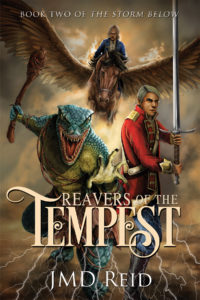 “Theisseg didn’t create the Storm.” Her husband’s portentous words echoed through Chaylene’s mind. “She is the power that fuels it. It draws on her . . . essence. It exists because of her. She needs to be freed.”
“Theisseg didn’t create the Storm.” Her husband’s portentous words echoed through Chaylene’s mind. “She is the power that fuels it. It draws on her . . . essence. It exists because of her. She needs to be freed.”